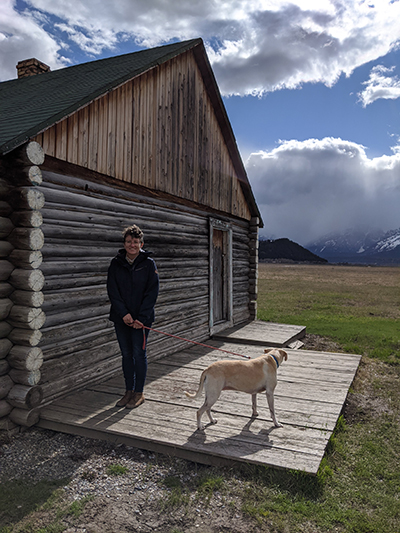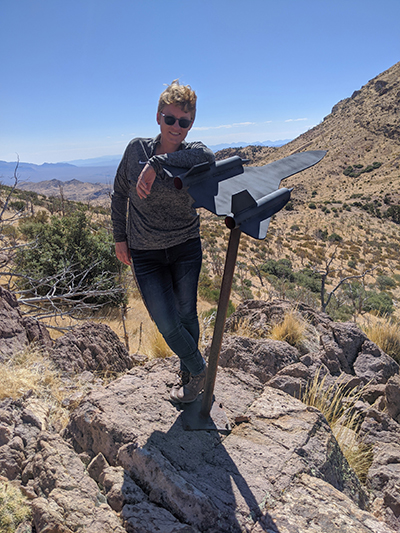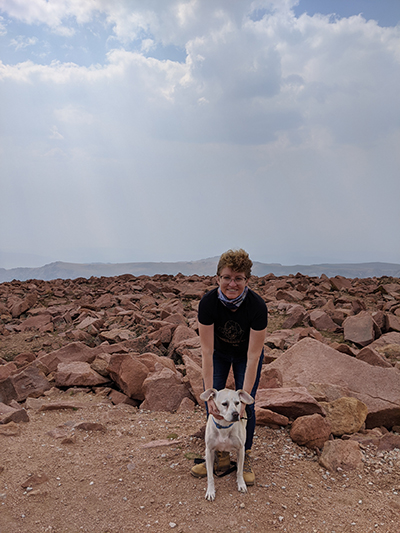Sarah Scoles
Freelance Journalist
Citation
Sarah Scoles is one of the most accomplished science writers on the topics of space and life in that harsh environment. She’s written two books about the search for extraterrestrial beings. She is equally at home critiquing telescopes and spacecraft as she is documenting human foibles in the hunt for far-out buddies. Her writing sings as a result. In 2019, her piercing, on-the-ground observations of the so-called raid on Area 51 became smash hits. Her “WIRED Guide to Aliens” stands out because of its distinctively Scolesian cocktail of humor and technical precision. Because of her long record of space reporting and strong command of narrative storytelling, Scoles was the perfect person to write about a new discovery: the seeming presence of phosphine in the atmosphere of Venus. It was a tantalizing hint of life so close to home. Her deep sourcing on this beat meant she knew of the finding well before the journal Nature Astronomy published the work. She used the time to conduct deep interviews of the scientists, identify a narrative thread that focused on two key women, and write one of the most beautiful first drafts I’ve ever seen. Knowing full well that a single report did not constitute proof, Scoles turned the uncertainty of the phosphine finding into a theme of the piece. Its detection was either a momentous occasion or a dud. Summoning to mind Schrödinger’s cat, she writes, “We have to hold in our heads the possibilities that Venus is alive and not-alive, at once.” The ability to navigate ambiguity is not only an important trait for alien hunters. It’s also what makes Scoles a standout writer whose work holds weight years after the news passes by.
— Sandra Upson Wired Magazine San Francisco, California
Response
I’m so grateful and honored to receive the David Perlman Award. Named after one of the great science journalists, the award means a great deal, especially since its goals mesh with mine — to make the fullness of science accessible and interesting to the general public, including those who might not yet know how it affects them. The whole community of science journalists strives toward this end.
That striving would be much less productive without editors like Wired’s Sandra Upson, who saw the potential discovery of phosphine on Venus and its potential meaning as worthy of coverage in part because of their uncertainty — as a way to talk about the process and messiness of science. Sandra’s editing made the ideas clearer, the sentences sharper and the jokes less bad. I’d also like to thank the friends, family and colleagues who make hard deadlines easier. And I’m grateful to the scientists I interviewed — Jane Greaves, Clara Sousa-Silva and Victoria Meadows — for making time in the midst of the frantic Nature embargo period to answer questions not just about spectroscopy but also about emotion, experience and doubt.
When I, along with a number of other journalists, received the embargoed word that Venus might have phosphine and that perhaps biology had created it, I knew the result was important — even if the data or interpretation didn’t hold up forever. I also knew that every publication with a science section would cover the news. And so I scrambled, with a week to pull reporting together, to find a way to write a slightly off-center piece — not as much about the discovery itself, but about the arc that led to it and the human and data-based complications surrounding it. I see the phosphine-on-Venus story as an example of what it’s like to live with uncertainty about things that are significant. That uncomfortable and thrilling feeling is something every human can understand whether they are a scientist or not.
I’ve long been intrigued by the idea of life elsewhere in the universe. As I grew up and went from thinking I might make such discoveries to wanting, instead, to share them with readers, I learned that if we ever did discover we’re not alone, the result wouldn’t be just a result: It would be a process — definitely long, probably tedious and less clear-cut than I’d imagined when I didn’t know what a spectral line or a radio wave was. But you know what, the best things in life — including life itself — are complicated.
— Sarah Scoles , Freelance Journalist, Denver, Colorado
Field Photos




